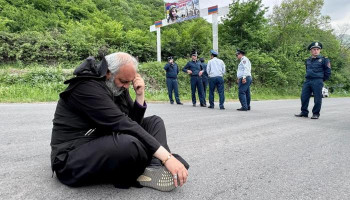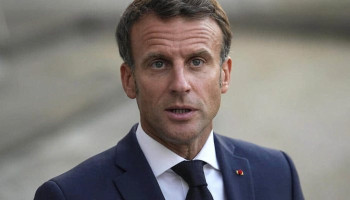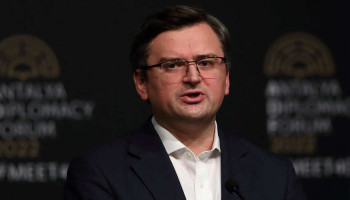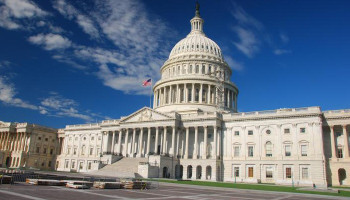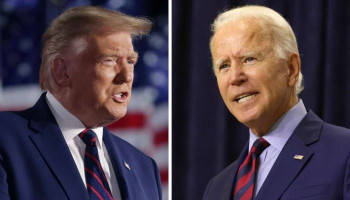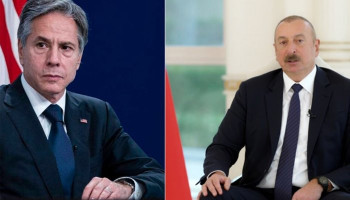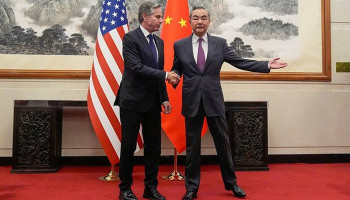In marking Armenian tragedy, Rivlin skirts term ‘genocide’
10:40, Monday, 27 April, 2015
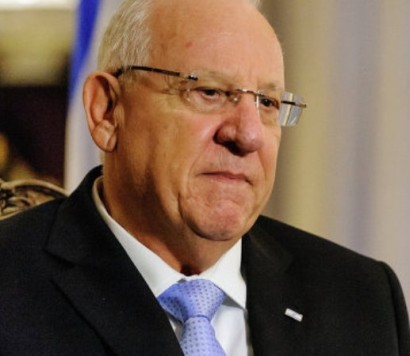 The president’s shunning of the term came amid speculation that he would officially acknowledge — in a first for a sitting Israeli head of state — the massacre as a genocide, over vehement and persistent Turkish opposition to the use of the word.
In 1915, when the members of the Armenian nation were being massacred, the residents of Jerusalem, my parents and the members of my family saw the Armenian refugees arriving in their thousands,” Rivlin said, addressing members of the local Armenian community who gathered at the President’s Residence in the capital. “In Jerusalem they found shelter, and you, their descendants, continue to live here today. No one in Jerusalem denied the massacre that had taken place. As you know, this has been my personal view ever since. We are morally obligated to point out the facts, as horrible as they might be, not ignore them. The Armenian people have been the first victim of modern mass killing."
“In Jerusalem they found shelter, and you, their descendants, continue to live here today. No one in Jerusalem denied the massacre that had taken place. As you know, this has been my personal view ever since. We are morally obligated to point out the facts, as horrible as they might be, not ignore them. The Armenian people have been the first victim of modern mass killing.” The president noted that the Israeli government had sent an official delegation to ceremonies and events in Yerevan, Armenia’s capital, in order to join in commemorating the tragedy. He said Israel was not seeking to place the blame for the killings on a certain country or people, but rather aimed to identify with the victims and the horrible results of the massacre. “Today, when the fundamentalist viper raises its ugly head again, we must remember that evil is not the property of any specific religion; just as it is not the attribute of any specific country or ethnic group,” he said. “We must not allow anyone to make a cynical usage of rhetoric on human rights for political purposes. Two weeks ago we commemorated the Holocaust and Heroism Remembrance Day. After this horrible Holocaust, commemorating the tragedy of the Armenian people is our Jewish obligation, a human and moral one,” Rivlin concluded. Before Rivlin was elected president, he was a vocal advocate of Israeli recognition of the genocide. As MK and Knesset speaker, he strongly argued that the moral imperative not to deny another people’s suffering must trump the dictates of Israel’s diplomatic and geopolitical needs. The ceremony was attended by Archbishop Nourhan Manougian, the Armenian patriarch of Jerusalem, who following Rivlin’s speech said he was “greatly disappointed” that the Israeli leader failed to use the term genocide. Manougian nevertheless thanked Rivlin for organizing the event. Historians estimate that up to 1.5 million Armenians were killed by Ottoman Turks around the time of World War I, an event widely viewed by scholars as the first genocide of the 20th century. Turkey denies that the deaths constituted genocide, saying the toll has been inflated and that those killed were victims of civil war and unrest. To this day, Ankara maintains that 300,000 to 500,000 Armenians and at least as many Turks died in civil — rather than religious — strife when Armenians rose up against their Ottoman rulers and sided with invading Russian troops. As Armenians have campaigned for greater genocide recognition, Turkey has fiercely lobbied to prevent countries from acceding to this wish. Fearing repercussions from Turkey and wary of breaking ranks with American policy, Israel has refrained from calling the mass killings an act of genocide. Earlier this year, during an address to the United Nations in New York on International Holocaust Remembrance Day, Rivlin dedicated a large chunk of his speech to the fate of the Armenian people between 1915 and 1923. While he uttered the word “genocide” nine times throughout his speech, none of the mentions were in context of the Armenian tragedy. Still, speaking before the UN in his mother tongue, he employed the phrase retzah bnei ha’am ha’armeni, which means “the murder of the members of the Armenian nation” but comes close to the Hebrew term for genocide, retzah am. While Israel maintains its ambiguous stance on the Armenian tragedy, several world leaders and international organizations have recently chose to fully acknowledge the mass killings as genocide. Two weeks ago, Pope Francis referred to the killings as the “first genocide of the 20th century,” leading an outraged Turkey to recall its ambassador to the Vatican. The European Parliament has adopted a nonbinding resolution to commemorate “the centenary of the Armenian genocide,” while Germany’s Parliament used the term in a resolution on Friday. On the other hand, US President Barack Obama, who as a presidential candidate promised to recognize the genocide, noticeably avoided doing so during a meeting with Armenian American leaders at the White House to discuss the centennial last Tuesday. |
7055 | 0











